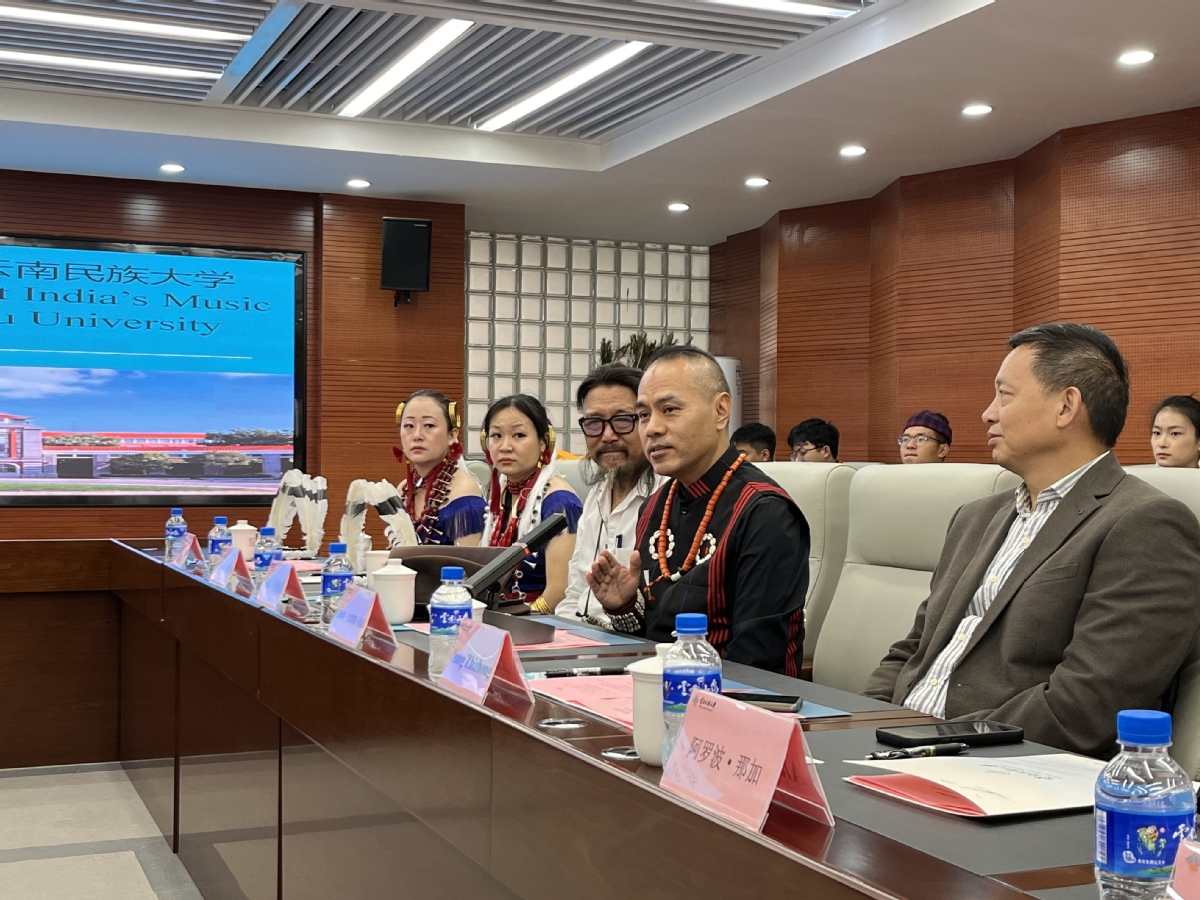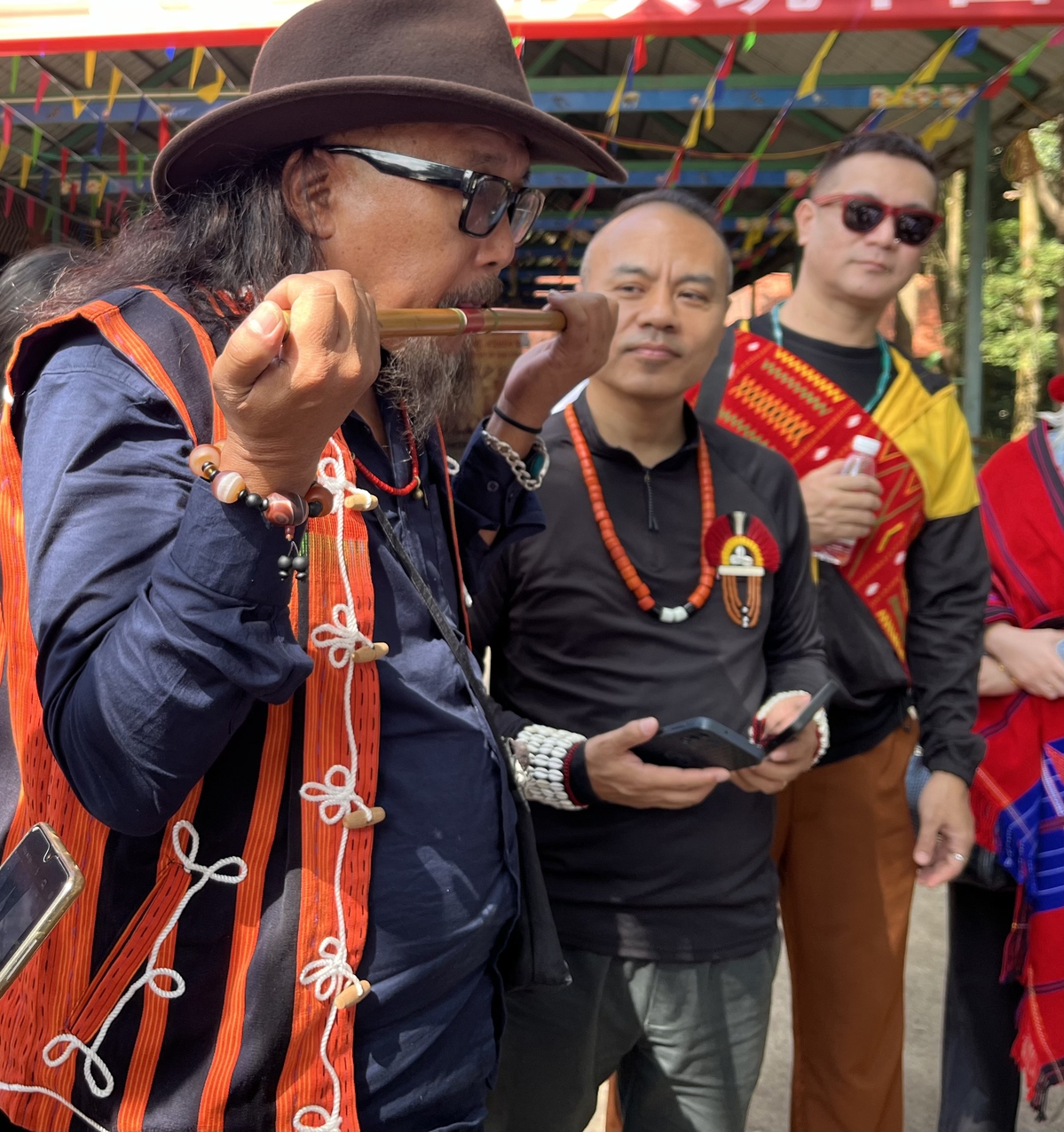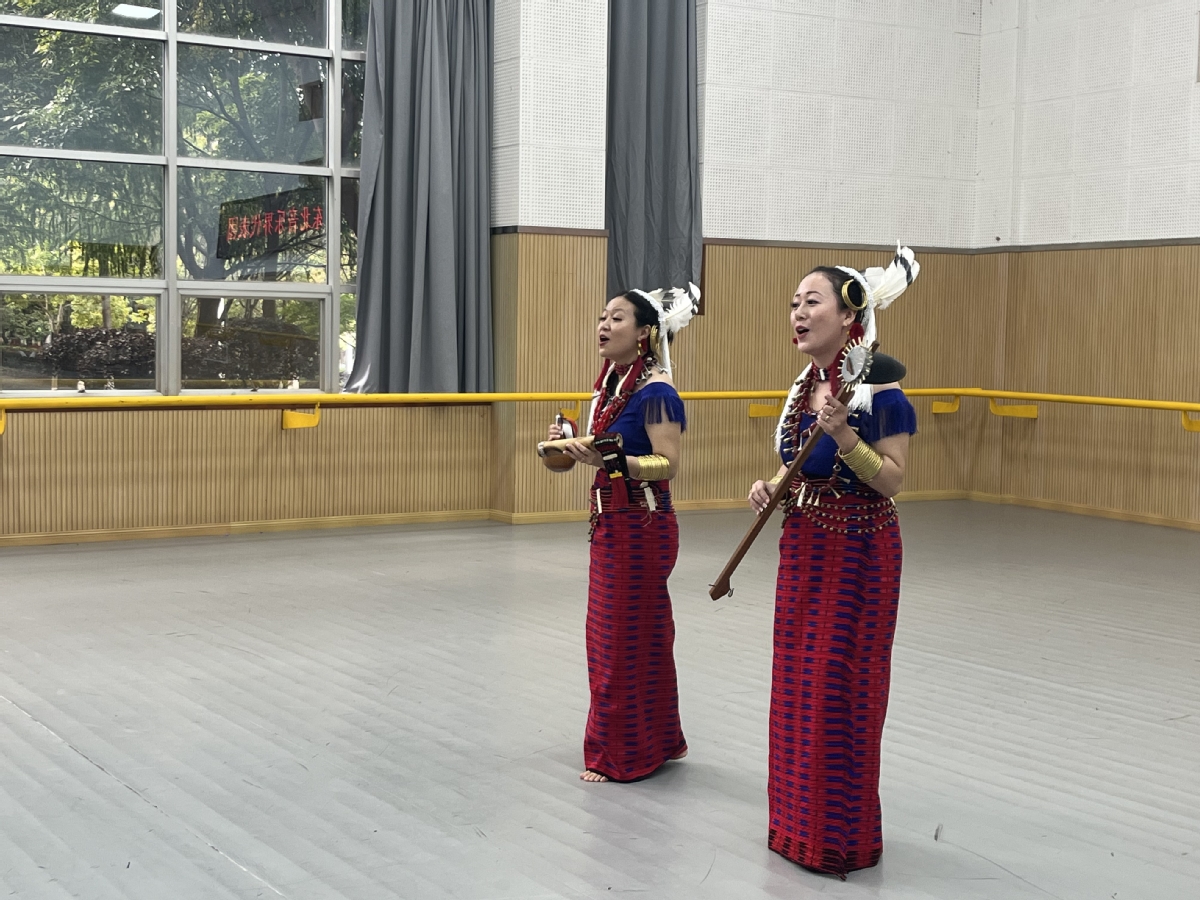Indian musicians' Yunnan visit to bridge bilateral exchanges


Cultural exchanges and people-to-people communication are conducive to the development of bilateral relations, said a group of Indian musicians who experienced Chinese music and culture during their trip to the country.
At the invitation of the Consulate General of China in Kolkata, West Bengal, India, the six-member delegation of musicians have visited Southwest China's Yunnan province from Monday to Saturday.
Led by composer, conductor and music teacher James Shikiye Swu, the delegation included tribal singers, folk musicians and educators.
They began their trip in Kunming, the capital of Yunnan. During their two-day visit there, the members of the delegation watched Chinese performances, met with teachers and students at Yunnan Minzu University, and took part in cultural exchanges with experts and scholars at the Yunnan Academy of Social Sciences.
After watching Dynamic Yunnan, an original ethnic dance musical at the Yunnan Art Theater, Alobo Naga, an Indian singer and composer, said he was amazed by the performance.
"It's a very good experience, especially the culture. I could see lots of similarities (of our cultures). It's something unique, we feel that we are at home," Naga told China Daily in an exclusive interview, adding that it was his first visit to the Chinese mainland.
He also noted that India and China are and will always be neighbors.
"We have to be good to one another, and to be friends, because no matter what happens, we will be neighbors for a lifetime," Naga said.
He said the delegation has come to know more about China, and he hopes the cultural exchanges initiated in China will continue, so the friendship between the two countries will grow more.
It was delegation member Nise Meruno's third visit to Kunming, and the music instructor said that the purpose of India-China bilateral exchanges is not only to celebrate diversity, but also to celebrate unity and to make the world a peaceful place to live.

Rewben Mashangva, a folk music guru in India, tried playing the erhu, a two-stringed Chinese instrument, after watching a performance by an YMU student named Zhang Fuxue.
During the delegation's visit to the university, Mashangva sang a song written by himself, which was dedicated to women. The song, with its tenderness and emotion, triggered loud applauses from the Chinese audiences.
He also tried a flute from the Jingpo ethic group, after listening to a flute performance by Jingpo artist Zhang Long during the delegation's visit to Longchuan county, Dehong Dai and Jingpo autonomous prefecture in Yunnan.
The singer, in his 60s, has visited China several times. He also attended the Shanghai International Film Festival last year.
While visiting Longchuan county, Mashangva was so amazed by the conservation of traditional cultural heritage. "My hometown used to own many traditional architectures and symbolics, but now they are all gone because the younger generation prefers a western style, including music."
"I am trying my best to protect our local music and culture," he said.
During the visit, the Indian musicians were amazed and touched by China and were full of strong interest in everything China. Naga decided to learn Mandarin to better explore China, while Swu warmly invited his Chinese counterparts to visit India, jointly celebrate local festivals and experience local culture.

Singer and composer Nungshitula Pongener and singer and conductor Merenyangla Pongener are sisters, who performed together many times during the trip.
Nungshitula, the younger sister, was very interested in the Chinese language and asked the delegation interpreter to teach her some simple Chinese words at the airport. She soon found herself learning the Chinese language quickly, with very good pronunciation.
Merenyangla, the elder sister, was very curious about Chinese youth culture. She was interested in the websites and apps that Chinese people use to listen to music and watch videos.
During the visit, some members of the delegation found that many of Yunnan's ethnic groups, especially the Yi and Jingpo people, had many similarities in dress, language, food and architectures with their counterparts in India.
Naga was very excited while tasting steam-pot chicken, a Yunnan-style dish, saying that in India, they also have this kind of chicken soup, but with ginger and garlic.
Swu said that the musicians learned so much by coming to China and he hopes the trip marks the beginning of increased people-to-people exchanges between the two nations.
"Maybe we should come back here again and do some research and stay longer, and go to the villages of the Yi and Jingpo people to take a look," Swu added.
Zhang Zhizhong, director of the bilateral section, Consulate General of China in Kolkata, India, said that this is the third delegation that the consulate has sent to Yunnan this year, with three Indian Buddhist monks having visited the province in April, and 10 artists and young scholars in July who participated events at the China-South Asia Cooperation Forum.
Zhang also said he hopes this activity will become a new bridge in China-India people-to-people exchanges, with that being the purpose of this trip.


















